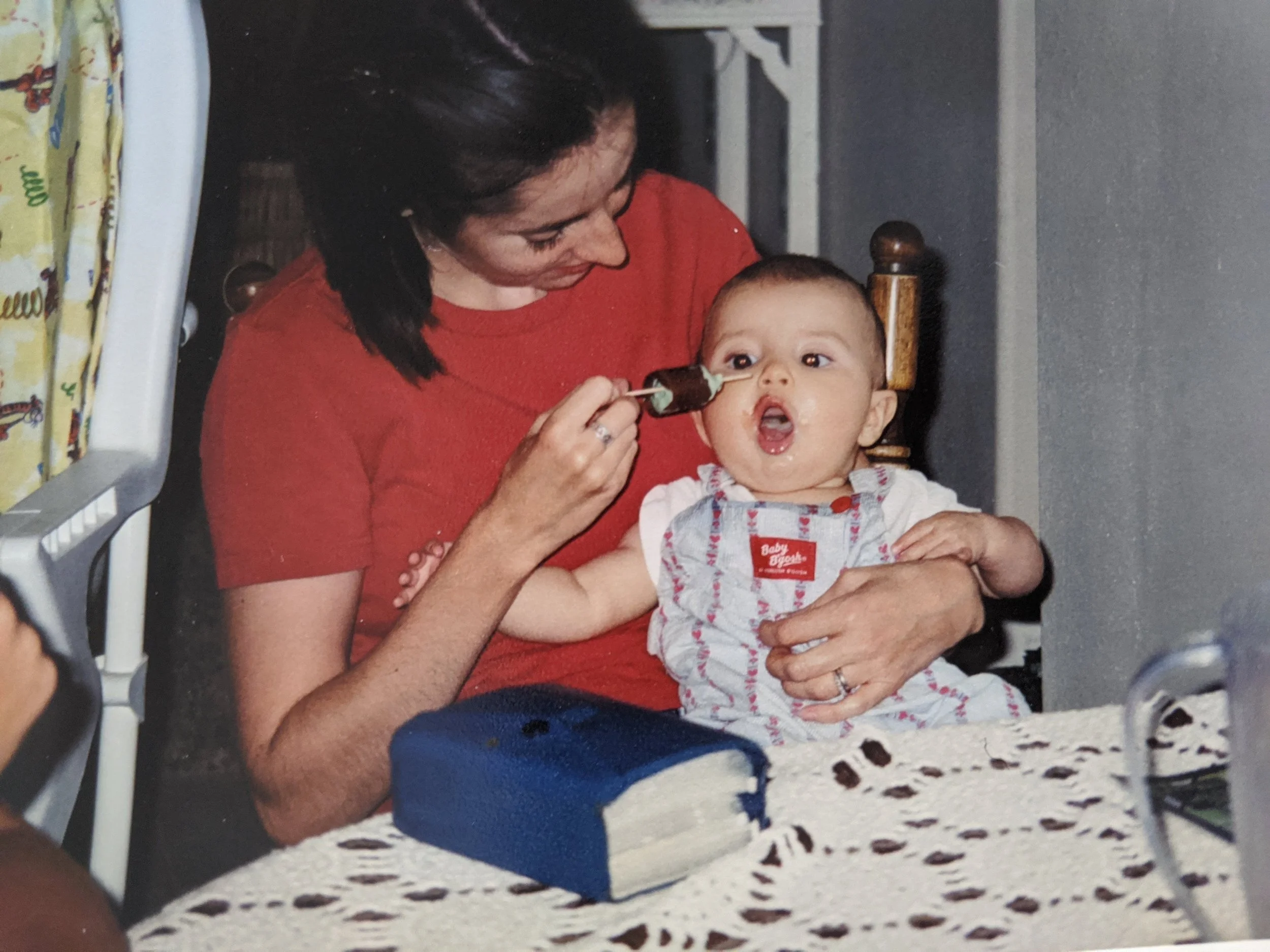Give Me Eric Carmen or Give Me Death (or, “Hungry Eyes”)
A person named Eric Carmen died last week. Most people do not know who Eric Carmen is. This is entirely permissible in the year 2024, since Eric Carmen has not been relevant to popular culture in at least 35 years. Which is a shame, because Eric Carmen was the source of several soft rock classics, and popular culture needs more soft rock. Give me Eric Carmen or give me death, that’s my motto. It’s not that catchy. Most of the time when I tried to shout it before getting in a fight in middle school, I got punched in the head before I could even finish saying it.
She’s got hungry eyes. (Blackfoot, Idaho; 2003)
I’m not an Eric Carmen expert. If such a person exists, I simultaneously admire and pity them. But I do know the basics. In 1976, Eric Carmen’s “All By Myself” reached the top 20 of the Billboard Hot 100. Far more impressive, “All By Myself” is based on a piano concerto by a Russian composer named Rachmaninoff, which rhymes with nothing. You know you are bad sauce when you trick the American public into enjoying Russian classical piano theory during the Cold War. Eric Carmen struggled to produce a follow-up hit for himself, but eight years later he managed to write one for someone else.
“Almost Paradise,” sung by Anne Wilson and Mike Reno, was the love theme from the movie Footloose, a term that describes someone who does what he or she pleases, no matter the consequences. The word was cool for about 18 months, after which deploying it in casual conversation instantly made you seem 15 years older than you actually were. But not in a good way.
Eleven years after “All By Myself,” Eric Carmen finally landed his smash hit follow-up when he placed the song “Hungry Eyes” (which he actually didn’t write) on the Dirty Dancing soundtrack for his first top 10 hit. I have never seen Dirty Dancing all the way through. This is a misdemeanor in upstate New York, which is why I always travel through Canada when I need to go from Ohio to Vermont, which has happened zero times.
“Hungry Eyes” is a pretty good pop song. At various points in the song, Eric Carmen sings the following lines: “I’ve got you in my sights,” “this love was meant to be,” and “I want to show you what love’s all about,” all of which smack hard of cliched 1980s pop lyrics. However, Eric Carmen completely redeems himself by using the word “subside” in the first verse. That is a super high IQ word for a Billboard top 10 pop hit. Kudos to Eric Carmen.
He’s got hungry eyes. (Santa Cruz la Laguna, Guatemala; 2022)
Now, I am not telling you about Eric Carmen and “Hungry Eyes” solely because I think either the singer or the song is hugely important to the overall quality of planet Earth, although I do think that, and I’m probably absolutely correct. I am telling you about Eric Carmen and “Hungry Eyes” because “Hungry Eyes” is arguably the most important song in my life. This fact is one of the reasons that I had few friends in grade school in the mid- to late 1980s, but only one of the reasons. But I digress.
Here is why “Hungry Eyes” is arguably the most important song in my life. One morning in the winter of 1988, my bedside radio/alarm clock woke me up for school. Prior to that morning, music was pleasant noise to me. I was aware of the songs in heavy radio rotation, like “What’s Love Got to Do With It” by Tina Turner, in which Turner calls love “a second-hand emotion,” a line I misinterpreted as “a second handy motion” until I was 38 years old. But hearing music was all I did. I heard it. I liked it.
Until that morning, when I heard “Hungry Eyes” for the first time. The chugging power chords. The slightly off-beat build of the verse to the pre-chorus. Then that glorious, booming, sing-along chorus, with the sultry background singers and the cliff-hanger hook, B flat to C — “one look at you and I can’t disguise, I’ve got…” — that resolves back into that crushing and dreamy F chord, “HUN-gry eyes…”
I had never felt a song before “Hungry Eyes.” It is counterintuitive that a fairly shallow pop song would be the first piece of music to touch me. But science cannot explain the mysterious delta where the heart and Eric Carmen meet. Neither objective musical excellence nor critical acclaim have place there. It is a realm of cosmic alchemy. Only Eric Carmen knows the words to describe this place: “I feel the magic between you and I.” Well, MC Hammer also described this place adequately when he said, “U Can’t Touch This.” So I’d say only Eric Carmen and MC Hammer can describe this place.
Music is magic. “Hungry Eyes” taught me that. Maybe I was just primed at that moment to feel it, and whatever came on the radio right then was going to change me. If so, I’m relieved it wasn’t Judas Priest’s “Breaking the Law,” because that surely would’ve ended with me in the clink, or at least in detention at lunchtime with Mrs Ortega for calling Jason Alford a poop-head. Not that he didn’t deserve it sometimes.
She’s got hungry eyes. Or something. (Reston, Virginia; 2006)
“Hungry Eyes” is not a universal work of art. Eric Carmen is not and will never again be a household name. But I’m glad he sang a sappy power ballad in 1987. It changed everything for me. Good job, Eric Carmen.







